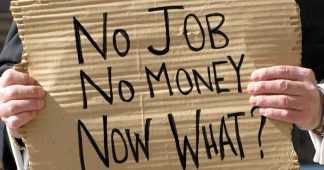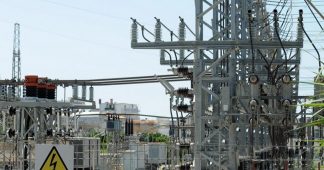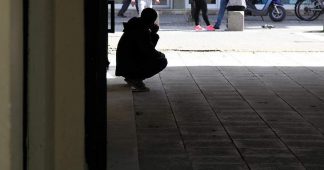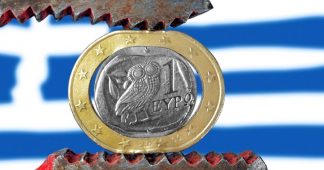Jordan’s prime minister resigns amid massive protests against IMF-dictated austerity
By Jean Shaoul
5 June 2018
Jordan’s Prime Minister Hani Mulki resigned yesterday following days of anti-government protests in Amman and other major cities. The protests were against a new law lowering the income tax threshold, a hike in the sales tax, and increases in the cost of fuel, electricity and water.
King Abdullah, the country’s real ruler, cancelled his planned overseas trip and appointed education minister Omar al-Razzaz, a former World Bank economist, in Mulki’s place. The king’s move follows the failure of his announcement last Friday suspending price increases until the end of the year—at a cost of $22.5 million—to assuage popular anger.
On Saturday, he called on parliament to lead a “comprehensive and reasonable national dialogue” on the new tax law, saying, “It would not be fair that the citizen alone bears the burden of financial reforms.”
Petra, one of Jordan’s news agencies, reported that legislators were set to ask Abdullah’s permission to hold an exceptional session to withdraw the changes.
Last Wednesday, 33 unions called a general strike of health care and public-sector workers—Abdullah’s key and very narrow social base—along with small towns, villages and tribal areas where the clans and indigenous minority East Bankers live. This was to protest legislative proposals aimed at increasing the proportion of income tax payers from 4.5 percent to 10 percent. The average wage, such as a teacher’s salary, is around $350 a month, or less than $5,000 a year.
This will hit families hard, because Jordan is a low-wage economy, where the median age is 22 years and it is the norm for young people to live at home with their parents until they can afford to marry. Many work at two or three jobs, if they can find them in a country with an official unemployment rate of 18 percent, a gross underestimate.
Corporation tax will rise from 35 to 40 percent. Manufacturers of food and other basic products will see their income tax rise from 24 percent to 30 percent. The new law will also criminalise tax violations, making them subject to prison terms and heavy fines.
This comes in the wake of January’s budget extending sales tax to a further 165 items, including basic products; increasing the price of fuel, electricity and water; raising tobacco tax; and increasing the cost of public transport by 9 percent.
The price of fuel has risen five times since January, while electricity bills, already phenomenally high, have risen 55 percent since February.
The removal of flour subsidies means that the price of a kilo of white bread has doubled from $0.22 to $0.45, while the price of smaller flat bread has increased by more than 67 percent.
Amman, where one-third of Jordanians live, is one of the most expensive capitals in the Arab world. Such is the hardship that there has reportedly been a 20 percent slump in sales during Ramadan, a period of peak retail demand.
These measures were the latest in a series of economic reforms following a $723 million three-year loan from the International Monetary Fund in 2016, aimed at reducing Jordan’s $40 billion public debt from about 94 percent of GDP to 77 percent by 2021.
Tens of thousands demonstrated across the country on Thursday and Friday. On Friday evening, protesters gathered outside Mulki’s office calling for the fall of the government. On Saturday, despite Abdullah’s announcement suspending price increases for fuel, electricity and water, some 200,000 took to the streets of Jordan’s towns and cities.
Social network sites were full of slogans such as “don’t touch my salary,” “a government of thieves” and “don’t steal our rights.” Strikers chanted, “We are here until we bring the downfall of the bill … This government is shameful” and “Our demands are legitimate. No, no to corruption.”
Three thousand demonstrators protested outside Mulki’s office on Saturday shouting, “Mulki should leave.”
Protests are ongoing, with a one-day general strike called for Wednesday.
The king is putting pressure on the US and his traditional supporters in the Gulf, whose funding has dried up over the last two years, to come up with the cash to prop up his tottering regime. Carved out of part of the Palestine governorate of Greater Syria, part of the former Ottoman Empire, by Britain in the aftermath of World War I, Transjordan was never a viable state. After World War II, and particularly after 1957, Washington replaced London as Jordan’s underwriter in return for its services in policing US interests in the region, suppressing the Palestinians over whom King Hussein (Abdullah’s father) ruled in both Jordan and, until 1967, East Jerusalem and the West Bank. Latterly, Jordan has provided a key staging post for US-backed operations against the Syrian regime of Bashar al-Assad.
It has become a holding pen for the region’s refugees—Palestinian, Iraqi and Syrian—created through wars in the geostrategic interests of the imperialist powers and their regional clients. As a result, Jordan’s population has soared from 5.5 million in 2003 to 9.9 million this year.
The Trump administration’s decision to cut its funding by £300 million to the UN agency for Palestinian refugees, UNRWA, has been catastrophic. With 2 million Palestinian refugees in massive refugee camps and in cities, their needs have now to be met from Jordan’s declining resources.
Jordan also has around 650,000 UN-registered Syrian refugees, of whom some 100,000 live in camps. Most live in the towns and cities, alongside nearly a million more unregistered refugees who seek work where they can. According to Jordanian officials, the government has spent $10 billion on the refugees, with little support from either its wealthy Arab neighbours or the major powers.
Around half of the Syrian refugees are children who should be attending school. To cope, many schools are operating a two-shift system, in the morning and afternoon.
The US signed an aid package for Jordan earlier this year for $1.275 billion a year beginning in the fiscal year 2018 and ending in 2022—a $275 million annual increase over the previous three years, but this only accounts for 10 percent of Jordan’s budget.
By far the major source of income is the Gulf. But the $3.6 billion from the Gulf Cooperation Council states came to an end 18 months ago, a major cause of the current economic crisis. The increasingly close alliance being forged between the US, Saudi Arabia and Israel against Iran has left Jordan out in the cold. At the same time, President Trump’s decision to move the US embassy from Tel Aviv to Jerusalem has undercut Amman’s role in Jerusalem, where Abdullah has guardianship of the al-Aqsa mosque compound, and inflamed tensions in the country, more than half of whose population is of Palestinian origin.
His visit to Riyadh in December to discuss the US embassy decision was fraught with tensions, leading to the Saudi authorities detaining a Jordanian-Palestinian businessman, Sabih al Masri, who heads the Arab Bank, Jordan’s leading financial firm. Relations soured further after Abdullah attended an Organisation of Islamic Cooperation meeting where the Jerusalem embassy issue was discussed, prompting Saudi Arabia to withhold a further $250 million in promised aid. Abdullah compounded his crime by shaking hands with Iranian President Hassan Rouhani during the Organisation of Islamic Cooperation summit in Istanbul two weeks ago.
In January, Abdullah reorganised the army, “retiring” three close relatives, including his brothers, from senior positions, amid rumours of a Saudi plot to unseat Abdullah— like the attempt to fashion a more pliant government in Lebanon via Saad Hariri’s forced resignation.
This is prompting speculation that to secure the kingdom’s survival Jordan may normalise relations with Syria, entertain closer relations with Tehran, ally itself with Qatar against Saudi Arabia’s embargo, refuse to accept Jerusalem as Israel’s capital and secure new patrons, such as Turkey.











